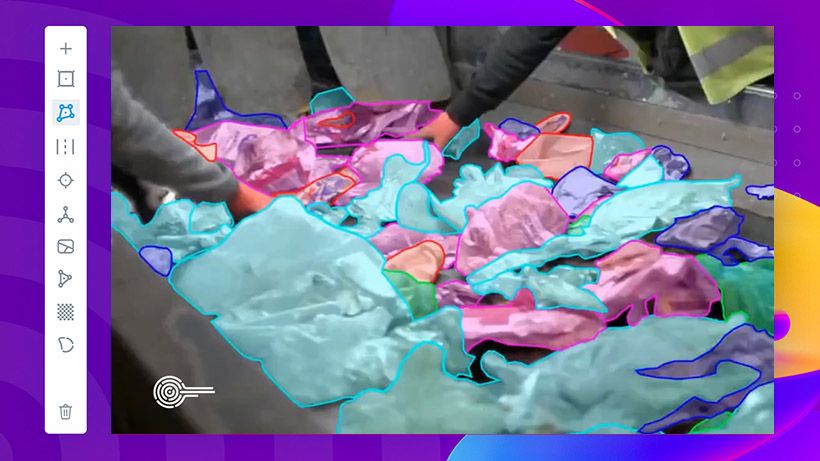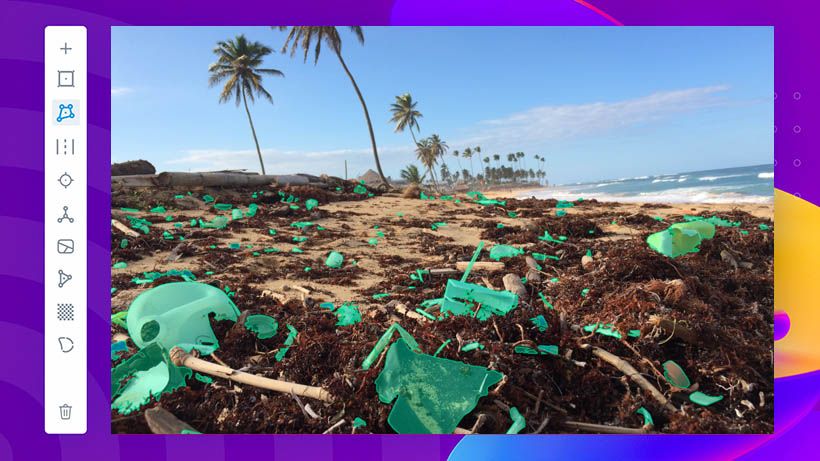Data Annotation Tools Can Help Make Waste Management Easier
Machine learning is being used to help solve one of our oldest and most persistent problems, waste management. The World Bank predicts that the amount of waste produced globally each year will rise to 3.4 billion tonnes in the next 30 years. This is a more than 50% increase from the 2.01 billion tonnes created currently.
More waste means more pressure on waste management authorities and private businesses. Failure to control waste processing and promote recycling can lead to increased pressure from the voting public and consumers. As a result many organisations are now turning to computer vision based AI models. Systems powered by AI can make waste management safer, cheaper and faster.
However, if these AI use cases are to reach their potential they need access to high quality annotated training data that helps them learn.
This blog will address four key challenges that waste management AI is helping to overcome. In each case we will show how data annotation tools can help AI companies to reach their development goals.
Sorting hazardous waste
Organising waste for recycling can be a dangerous job for humans. Chemical and biohazard waste (such as from hospitals) can cause significant harm if handled incorrectly or unknowingly. Robots may provide the answer to this difficult challenge. AI powered robots can autonomously identify harmful waste items and remove them safely, without the help of human operators.

However, when safety is the goal it is essential that computer vision models perform well every time they are deployed.
Image annotation tool can help developers improve the accuracy of annotated AI training images and video. For example, Keylabs’ project management features ensure that tasks are given to the highest performing annotators. Detailed performance metrics mean that managers can easily keep annotation standards high.
Identifying markings
Many types of packaging and waste have markings that indicate what the material is and how it should be handled. Computer vision based AI models should be able to process this visual information. As a result these systems can efficiently sort waste products. AI is much faster than humans when it comes to identifying small, predictable visual signs in this way.
Annotating image and video data can be slow and boring. However, the right tool can help annotators and managers by streamlining the annotation process. Keylabs features linear interpolation, which allows objects and signs to be automatically tracked from one frame of video data to another.
Automated recycling
AI can be used to support recycling facilities. With larger amounts of waste these facilities could potentially be overwhelmed. Thankfully, computer vision can automate and accelerate the process of sorting waste for recycling. Object recognition for AI means that robotic systems can identify waste types and autonomously sort them in the right way.

However, object recognition relies on large quantities of precisely annotated training data. Keylabs helps AI developers by supporting the creation of metadata, including hierarchical structures.
Waste spotting drones
Landfill zones can be enormous, stretching over large areas. As a result they can be confusing to navigate and survey. That is why many waste management organizations use aerial drones to analyze wider landfill areas. Computer vision systems can be installed on these drones.
This allows them to be used to spot particular types of waste more accurately than a human. This technology is particularly useful for finding plastic waste floating on the surface of the ocean.

Video annotation is particularly important for drone based AI applications. Keylabs makes video annotation easier by allowing multiple annotators to work on one piece of footage at the same time. When their work is complete the different sections can be seamlessly merged back together.
Data annotation tools support innovation
Waste management is an important industry that can benefit hugely from machine learning. Keylabs is an annotation tool that makes image and video annotation faster and more accurate for developers in this sector.
